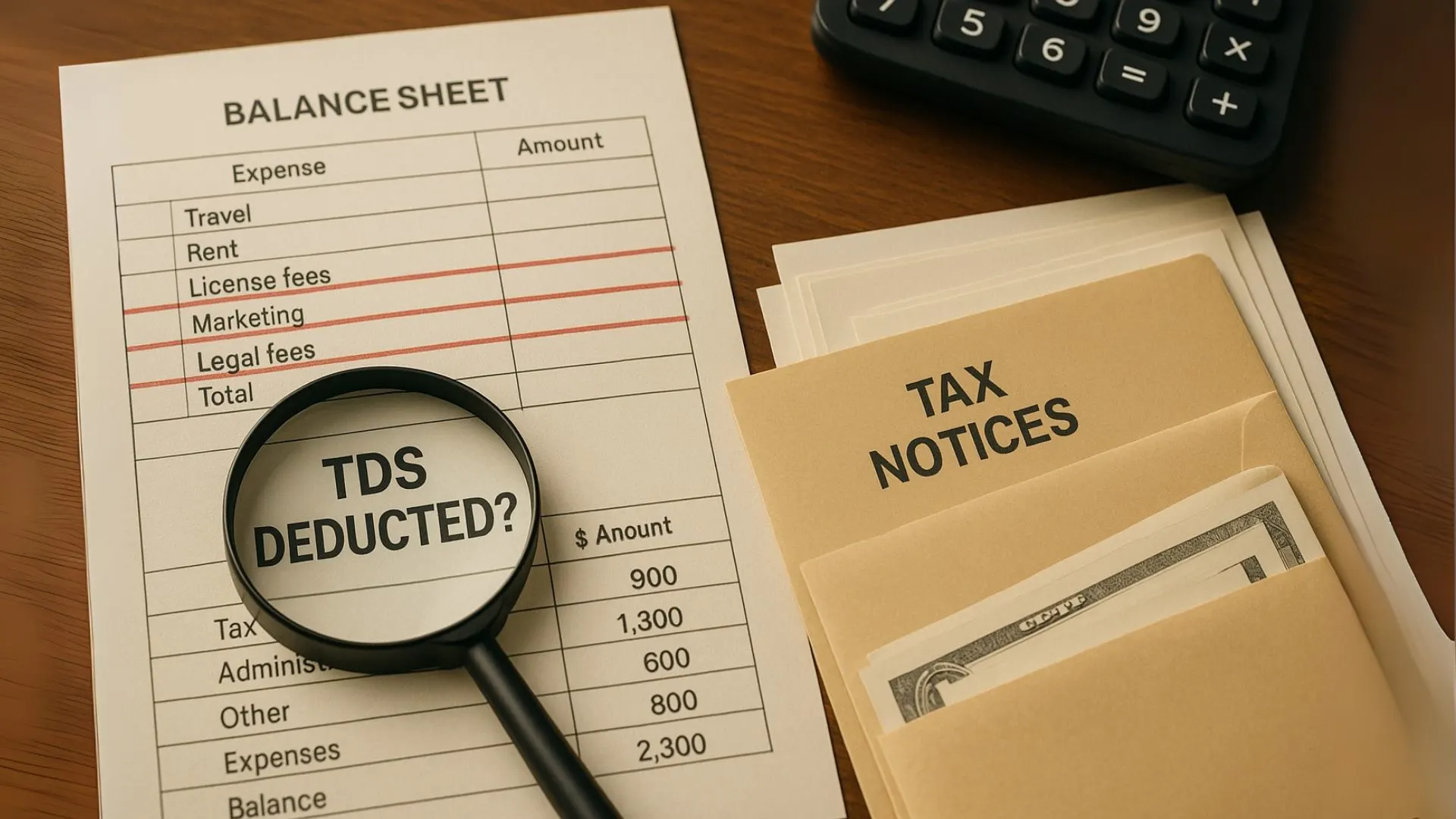
When it comes to business expenses and taxation, not every payment you make is automatically deductible. Section 40a(ia) of Income Tax Act plays a crucial role in ensuring compliance with TDS laws. It deals with disallowance of expenses when tax is not deducted at source as required. In simple terms, even if you spend money on valid business purposes, the Income Tax Department can refuse to let you deduct that expense if TDS was ignored.
This provision acts as a safeguard for the government, ensuring that tax collection happens at every eligible stage. From payments to contractors to fees for technical services, the scope of this section is wide and impactful for both small and large businesses.
Scope and Applicability
Under the Income Tax Act 1961, Section 40a(ia) specifically provides for the disallowance of certain expenses such as:
- Interest payments without proper TDS deduction
- Royalty payments
- Fees for technical services
- Professional service charges
If these payments are made to a resident and the required TDS is either not deducted or not deposited to the government, the related expenditure will be disallowed in computing taxable income. This means a direct increase in your taxable profit — and therefore, higher tax liability.
Why Section 40a(ia) Exists?
The government uses this provision to plug revenue leakages. Many businesses used to claim large expense deductions without actually deducting TDS, which led to tax loss. By disallowing expenditure towards interest, royalty, fee for technical services without proper TDS, the section ensures that tax is deducted at the right time.
This acts as a compliance mechanism — encouraging taxpayers to stay on top of their TDS obligations or face a hit in their profit and loss account.
Disallowance Percentage
Initially, the entire amount of such expenses was disallowed if TDS provisions were not followed. However, as per recent amendments, only 30% of the total expenditure will be disallowed in the year of default. The remaining 70% will still be allowed as deduction.
This change was brought in to make the law less harsh, while still ensuring compliance.
Also Read: Disallowances on Expenses and Payments
Conditions for Disallowance
For disallowance to apply under Section 40a(ia):
- The payment should be made to a resident
- The payment should fall under categories requiring TDS deduction
- TDS was either not deducted at all or, after deduction, not deposited to the Central Government within due dates"
- The expenditure is otherwise allowable under normal business expense rules
Impact on Businesses
Failure to comply with Section 40a(ia) can significantly increase your tax burden. Example:
If you paid ₹5 lakh as professional fees without deducting TDS, ₹1.5 lakh (30% of ₹5 lakh) will be disallowed and added to your taxable income. At a 30% tax rate, that’s an extra ₹45,000 in tax — not counting interest and penalties.
Quick Facts About Section 40a(ia)
- Applies only to payments made to residents
- Covers interest, royalty, technical and professional fees
- Disallowance percentage = 30% of expenditure
- Applies even if payment is made in cash or bank transfer
- Compliance = Deduct TDS Deposit on time
How to Avoid Disallowance?
Here’s how businesses can stay compliant:
- Know TDS rules – Identify all payments requiring TDS deduction
- Deduct on time – Deduct TDS at the time of payment or credit
- Deposit promptly – Ensure TDS is deposited to the Central Government within the due date
- File TDS returns – Timely filing avoids mismatches in Form 26AS"
Case Laws and Interpretations
Several judicial rulings have shaped the scope of Section 40a(ia). Courts have clarified that the provision applies even to amounts payable at year-end, not just amounts already paid. However, if the payee has already paid tax on such income, relief may be available to the payer.
Common Mistakes to Avoid
- Assuming small payments are exempt from TDS
- Ignoring TDS on year-end provisions for expenses
- Delaying TDS deposit beyond due dates
- Not obtaining PAN of payee, leading to higher TDS rates
Also Read: A Hidden Provision That Can Save or Sink Your Tax Planning
Practical Example
Suppose a company pays ₹2 lakh to a consultant in March but forgets to deduct TDS. Under Section 40a(ia), ₹60,000 (30%) will be disallowed. If TDS is deducted and paid before filing the return, the disallowance can be avoided.
Conclusion
Section 40a(ia) may seem like just another compliance headache, but in reality, it’s a tool to promote tax discipline. Businesses that stay compliant not only avoid disallowances but also build credibility with tax authorities.
📌 Pro Tip: Always maintain a TDS compliance calendar and reconcile expenses regularly.
💡 Want to ensure your business never faces disallowance under Section 40a(ia)? Our experts at Callmyca.com help you stay TDS-compliant, avoid penalties, and maximize your deductions — before it’s too late!











